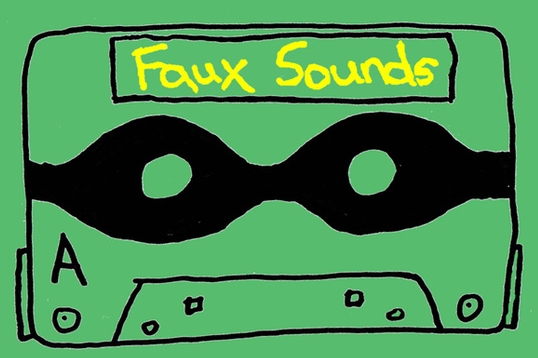The Problem With "World Music" and Why You Should Too
"This is not global music. This is our music." On All Songs Considered's recent annual podcast covering globalFEST in New York, the normally insightful Bob Boilen expresses a mix of confusion and consternation about this onstage comment from one of the performers at the day-long World music festival. In response to this comment from Baloji, a Belgian-Congolese rapper/singer, Boilen frets, "I didn't know quite how to take it. I felt like he was dissing in some ways the World music thing." To me, it doesn't seem that difficult to understand what Baloji must have been getting at. And, as the other journalists on the podcast allude to, it certainly represents a common tension among musicians lumped into the "World music" category. A quick survey of the stark differences between the performers covered in just this single podcast (a Jamaican singer/one-string guitarist, an electro-traditional Ukrainian performance-art outfit, and a pan-Latin orchestra from Arizona, to give a few) illustrates just how little most have in common with each other - musically, culturally, etc. For an artist who has invested considerable energy in cultivating an original, highly-personal sound - rooted in a specific tradition but reflecting many contemporary influences - being defined as "World music" must be deeply disorienting, if not downright offensive.
What is World music, anyway? From where I stand, artists who get lumped into this category generally have two things in common: 1. They're drawing on an ethnic heritage or tradition, and 2. They are not singing in English.
When you consider that American groups drawing deeply on American traditional music are not generally to be found in the World music ghetto, it becomes clear that the second of these is truly the main defining characteristic. (One does find traditional Celtic music sung in English in World music record bins, but that's a rare exception. Also, in globalFEST's defense, American roots groups like Carolina Chocolate Drops, Crooked Still, and Martha Redbone have played the festival.)
Whatever the intention behind the term, "World music" is essentially code for "other people's music," in which anyone who is not English-speaking and hewing closely to modern/Western/American musical standards is "other." It's a definition in the negative, grouping artists together based on what they are not, rather than what they are. A truly astute music journalist should have no more trouble imagining why that would be a problem than they would imagining why someone from Vietnam and someone from South Africa would have a problem with the idea that they are basically in the same group. Imagine asking someone where their newly immigrated friend is from and being told, "Oh, she's from Not-America." That's basically what happens every time something is described as "World music."
World music festival organizers and audiences do artists and fellow music fans a great service by creating the opportunity to see/hear music we might not otherwise be able to. But they do the artists and the music a great disservice by perpetuating the pretense of a World music identity, and (way too often) presenting this music in a totally inappropriate environment - shoehorning raucous, sexual party music into daytime, kid-friendly venues; draining politically-charged, context-rich music of its bite by plopping it down in the middle of a neutral environment, etc. A hip-hop/funk group from the Congo should be playing in clubs that book hip-hop/funk groups. A classical musician from India should play in halls that typically host classical music. Etc.
Why is this kind of classification even necessary? I imagine there are a host of contributing factors, many relating to the history of the American music industry, the mechanics of shipping records all over the world, etc., etc. But really, I think it comes down to the jingoism of American music listeners and our collective aversion to listening to music that sounds unfamiliar, and/or (god forbid) sung in something other than English.
Ultimately, I think it's up to music fans to drive this revolution, to acknowledge that in 2014, with almost all music available within a few keystrokes, it makes no more sense to obey the division between American music and World music than it does to obey the once seemingly sacrosanct division between rock and rap. It's time to rescue 21st century artists from the World music ghetto. To recognize the commonalities at the heart of certain music, rather than the superficial differences. If you consider yourself a World music aficionado, why not be honest and admit that there are actually certain types of music within "World music" that you like and certain types you don't like? Festival organizers - don't put on any more "World music" festivals. Put on East African hip-hop festivals, or Balkan brass band festivals, or desert blues festivals. And if you consider yourself a music fan and don't listen to anything not sung in English and played on guitars and drums, do yourself a favor and get out of the American music ghetto.
In the playlist for this month I've included, purposely and incidentally, some of my current favorite music that would tend to get squeezed into the World music world. It reflects my interest in music from Mali, the Sahara, and related North African sounds, and my interest in traditional English and Celtic music. More ranting to follow in the annotations below. Enjoy!
